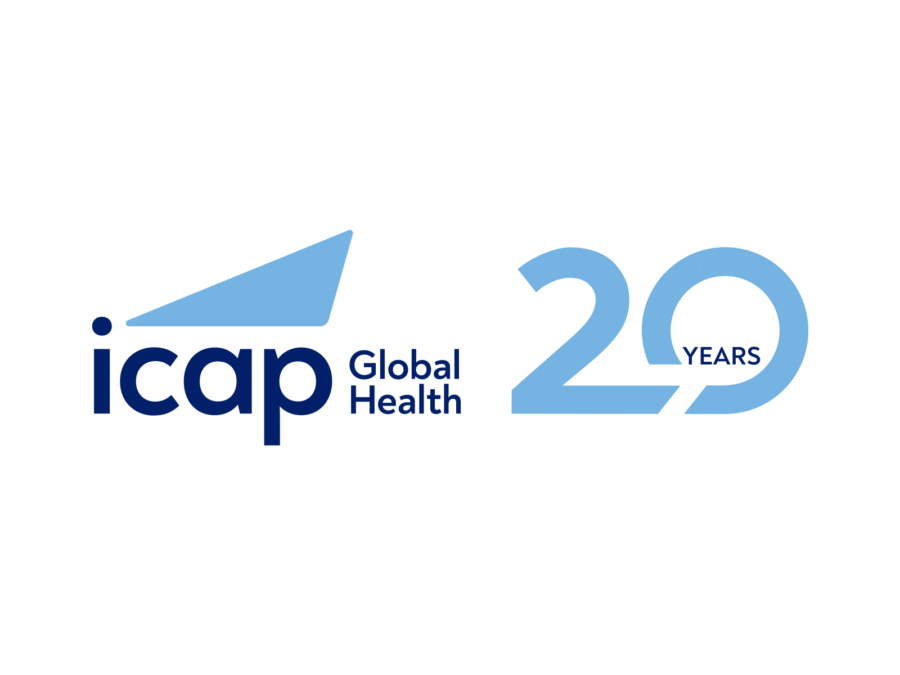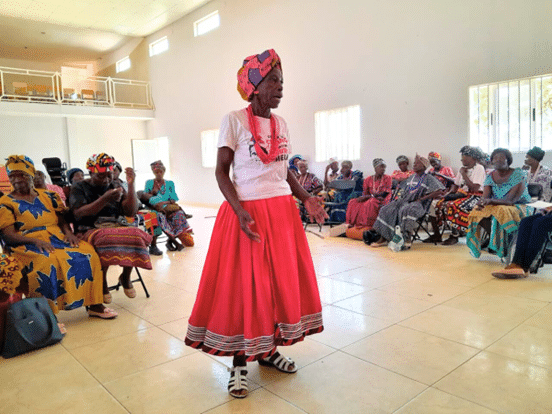In 2011, a global plan was launched to reduce new HIV infections among children. That same year, Cameroon was identified as one of the priority countries with a high rate of maternal transmission of HIV. It was estimated that only 53 percent of pregnant women living with HIV in Cameroon were receiving antiretrovirals to prevent mother-to-child transmission (PMTCT) of HIV. As the Government of Cameroon set new, ambitious PMTCT targets, it became a priority to strengthen monitoring and evaluation (M&E) in maternal health. Without strong medical records to refer to, health providers were unable to track pregnant women and provide consistent PMTCT care throughout the antenatal, delivery and postpartum period.
In 2012, with support from PEPFAR through the CDC, ICAP began partnering with Cameroon’s Ministry of Health to improve HIV care and treatment by strengthening the country’s M&E system to collect, analyze, use, and disseminate high-quality data by harmonizing systems for patient medical information.
To begin, ICAP reviewed existing national PMTCT and maternal and child health (MCH) services and found that M&E tools were not sufficiently integrated, varied widely across health facilities, and many health care workers did not know how to use them. At the time, there were more than ten registers in use for tracking information and many did not include HIV and PMTCT-related data. This lead to underreporting of services, and the impact of interventions could not be assessed.
“Some of us had never been trained on how to use the registers,” said Mrs.Tapeu Chistel, a nurse at Yaounde General Hospital. “Some were hand drawn and almost none of them had a job aid to ease understanding and use.”
To address these issues, ICAP, the MOH, and partners developed a single, standardized set of user-friendly M&E tools for PMTCT and MCH and piloted them in over 25 health facilities across the country. New standard operating procedures (SOPs) were also developed and distributed to every PMTCT facility in Cameroon.
“We are happy to have the SOPs as they help us understand how to fill in the different data elements and how to compile monthly reports,” said Mrs. Chistel. “With the SOPs, a health worker who has not received training can easily fill the registers and monthly reporting forms.”
To introduce the new M&E tools, ICAP developed a curriculum and trained over 40 national master trainers. Subsequently, these trainers collaborated with ICAP and master trainers to teach over 190 regional trainers, who then provided instruction in use of the new M&E tools to nurses, midwives, laboratory technicians, and other health workers at health facilities across Cameroon. ICAP also worked with master trainers to provide on-site training, mentorship, and supportive supervision to health workers.
“Providing health workers with clear procedures, combined with training and mentorship, is an effective way to increase health workers’ capacity and motivation to collect quality, routine data,” said Caitlin Madevu-Matson, strategic information specialist at ICAP.
By 2015, the number of patient registers in use at MCH and PMTCT facilities had been reduced from ten to five. Over 26,000 copies of the new registers, monthly reporting forms, and SOPs were distributed to over 3,500 PMTCT sites in Cameroon. In three years, over 12,000 health workers and managers were trained on how to use the new, streamlined set of PMTCT and MCH M&E tools.
“These tools provide an opportunity to access high-quality data and use this information to assess gaps in the health care delivery system,” said Dr. Ebogo Mesmey, ICAP country director in Cameroon. “With this information the MOH can guide decision-making and measure progress toward the ultimate goal of eliminating new pediatric infections in Cameroon.”








